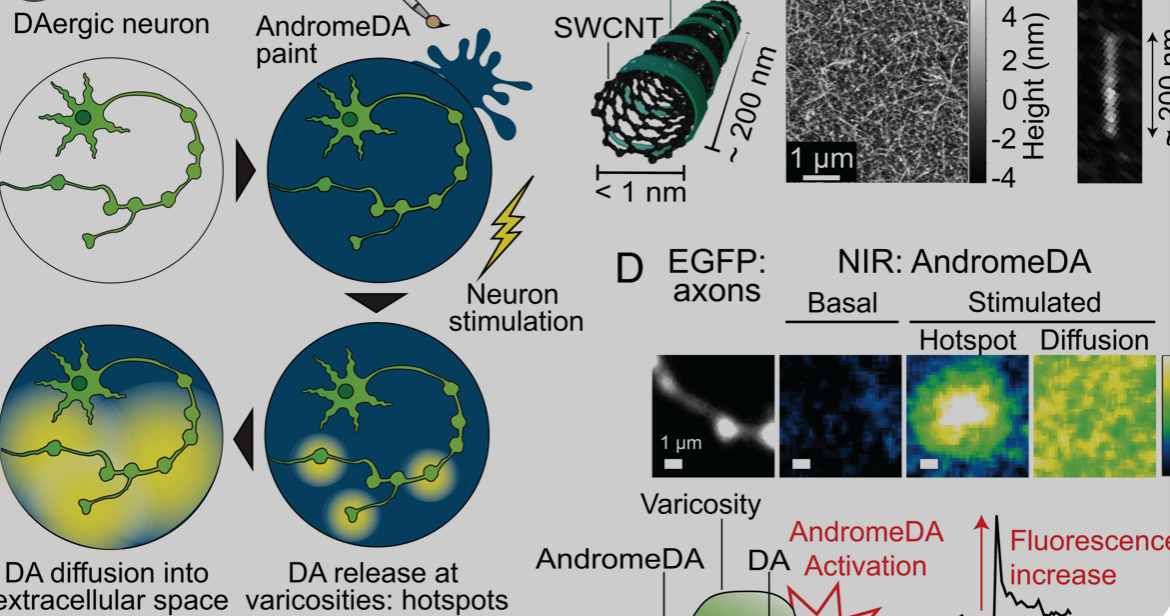Ruhr University professor Sebastian Kruss, with Max Planck researchers Sofia Elizarova and James Daniel, has developed a sensor that can visualize the release of dopamine from nerve cells with unprecedented resolution. The team used modified carbon nanotubes that glow brighter in the presence of the messenger substance dopamine.
Eizarova said that the sensor “provides new insights into the plasticity and regulation of dopamine signals. In the long term, they could also facilitate progress in the treatment of diseases such as Parkinson’s.”
Join ApplySci at MIT on September 30th for Deep Tech Health + Neurotech Boston
